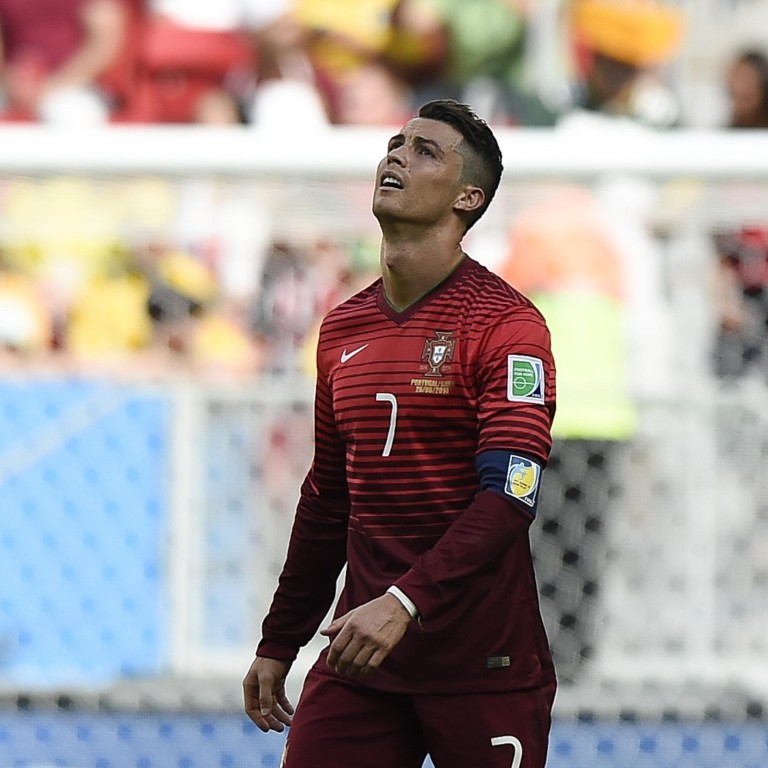
2014 World Cup 'is much better than a trip to the dentist'
Thrills and spills of Brazil edition proves that global contest is still pinnacle of beautiful game
From Mexico coach Miguel Herrera's extravagant touchline theatrics to Chile's whirlwind attacking play, the World Cup has shown that football has far more to offer than the staple fare of Champions League, Premier League and La Liga.
A disappointing tournament in 2010 led to suggestions that the World Cup had lost its allure and the Champions League, where the world's top players are concentrated into an elite handful of clubs, was now the highest level.
"It [the Champions League] is better than the World Cup. It is unbelievable. There are some fantastic games," said the then Manchester United manager Alex Ferguson shortly after the tournament in South Africa.
The World Cup is simultaneously a state of the nation address and a proclamation of national identity
"Have you seen the last six World Cups? It is better going to the dentist, I suppose."
Former Liverpool and England Jamie Carragher voiced a similar opinion last year.
"Summer tournaments have become tedious and rarely live up to expectations now," Carragher said. "International football simply cannot compete with the club game."

But a month of compelling action in Brazil has shown that nothing else can come close to the passion of a World Cup, where entire nations come to a complete standstill to watch their teams play.
Tens of thousands of South Americans, refusing to be deterred by a shortage of accommodation and overpriced flights, drove across the continent to watch their teams, often sleeping in their vehicles or in improvised camping sites.
The sight of Colombia midfielder James Rodriguez weeping copiously or Switzerland defender Stephan Lichtsteiner clinging to the back of the net in despair after Argentina's last-gasp winner are just two of the heart-wrenching moments, which testify to the tournament's unique importance.
For all the rampant commercialism surrounding the tournament, on the field it remains one of sport's purest competitions.
Teams have to be selected from the players their country produces, rather than simply buying up the best in the way that clubs can, and there is no dipping into the transfer market to fill in any gaps.
The format, after being chopped and changed over the years, is wonderful in its simplicity, with eight groups of four teams, followed by a knockout stage.
With the possible exception of Europe's qualifying competition, teams face a torturous route to the finals and have to fight hard over a two-year period to get there, dealing with hostile crowds, heat, altitude, marathon journeys, dubious hotels and pot-holed pitches on the way.
There are no complex coefficients to help some teams along the way, nor do teams leap from one competition to another as they do in the Champions League and the Europa League.
While club football tends to feature all the same familiar faces year after year, often switching between teams with bewildering frequency, the World Cup has thrown up a host of refreshing new faces and unlikely heroes.

Players who have struggled at club level can suddenly thrive when playing for their countries as Argentina's Sergio Romero proved by saving two Dutch penalties in the semi-final shoot-out after spending most of the season on the bench at Monaco.
Colombia showed they were far more than exotic haircuts and eccentric goalkeeping, the lingering memory from their 1990s teams, as they reached the quarter-finals with some of the tournament's most stylish football.
Gary Medel, relegated from the English Premier League with Cardiff City, was a rock at the centre of defence in an outstanding Chilean side, while unheralded Costa Rica reached the quarter-finals with a team built around Bryan Ruiz, who was unwanted by Fulham.
Algeria came exasperatingly close to beating Germany in the second round and tactically were one of the most sophisticated of the 32 teams, a far cry from the stereotype of naive African sides.
The shattering of reputations, as happened with a totally ineffective world player of the year Cristiano Ronaldo and five-times world champions Brazil, thrashed 7-1 by Germany in a surreal semi-final, can be just as memorable.
Throw in national pride and the fact that for most players the World Cup represents a once-in-a-lifetime opportunity and you have the perfect recipe for one month of unremitting drama.
"In many ways, the World Cup is simultaneously a state of the nation address and a proclamation of national identity," said Simon Chadwick, professor of sport business strategy and marketing at Coventry University in central England.
"It is the former because it reveals something about the talent available to a country, about coaching competence and about a country's ability to forge a team.
"It is the latter because the way a team plays says something about a nation and its values."

